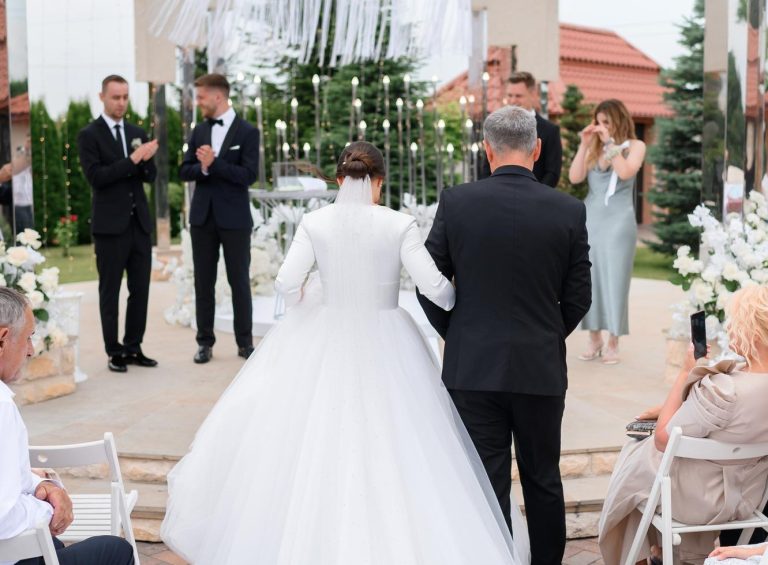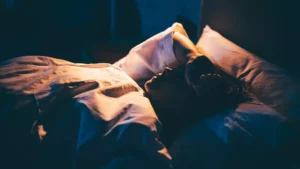A Story of Hidden Lives, Devastating Betrayal, and the Truth That Changes Everything
The city dump stretched before me like a wasteland of abandoned dreams—a sprawling landscape of broken furniture, rusted appliances, and the accumulated debris of lives discarded and forgotten. The overwhelming smell of decay assaulted my senses with each breath, mixing with the acrid scent of burning trash from somewhere deeper in the massive complex. Above me, scavenging birds circled in lazy patterns, their harsh cries cutting through the oppressive afternoon heat.
I never imagined I’d find myself in such a place, standing knee-deep in refuse with a utility knife clutched in my trembling hand, searching desperately for a mattress my husband had thrown away in an apparent fit of madness. But desperation makes us do unthinkable things, and the man I’d shared a bed with for fifteen years had become a stranger overnight—a stranger whose increasingly erratic behavior had culminated in this bizarre mission.
My name is Catherine Walsh, and until three days ago, I believed I knew everything about my husband Marcus. We’d met in college, fallen in love over late-night study sessions and cheap coffee, married young, and built what I thought was a solid, honest life together. Marcus was a financial consultant, methodical and predictable, the kind of man who color-coded his closet and never missed a mortgage payment. Our life was comfortable, ordinary, reassuringly mundane.
Then everything changed with a single phone call.
The Beginning of the End
It had started on a Tuesday morning. I was making breakfast when Marcus’s phone rang with a number he didn’t recognize. I watched his face transform as he answered—first confusion, then shock, then an expression of pure, undiluted panic I’d never seen before. He’d mumbled something incoherent and rushed out of the house without explanation, leaving his coffee untouched and his briefcase behind.
When he returned hours later, he was a different man. His usual composure had shattered, replaced by manic energy that set my nerves on edge. He paced our bedroom like a caged animal, muttering to himself, running his hands through his hair until it stood in wild tufts. I tried to ask what was wrong, but he just stared at me with haunted eyes and said nothing.
That night, I woke at three in the morning to find his side of the bed empty. I discovered him in the garage, frantically loading our ten-year-old mattress—the perfectly good mattress we’d bought together, the one that had no business being replaced—onto the back of his truck.
“Marcus, what are you doing?” I’d demanded, wrapping my robe tighter against the cold garage air.
“I need to get rid of this,” he’d said without looking at me, his voice strange and hollow. “I should have done it years ago.”
“Get rid of what? Our mattress? Have you lost your mind? It’s three in the morning!”
He’d finally turned to face me, and what I saw in his eyes made my blood run cold—not anger, not frustration, but raw, desperate fear. “You wouldn’t understand, Catherine. Please, just… go back inside. Forget you saw this.”
But I couldn’t forget. I watched from the window as he drove away into the darkness, the mattress secured haphazardly in the truck bed, and something deep in my gut told me that whatever was happening would change everything.
He returned an hour later without the mattress and without any explanation. The next morning, he was gone before I woke up, leaving only a hastily scrawled note: “Had to go out of town for work. Don’t worry.”
But I was worried. Terrified, actually. Because Marcus never went anywhere without meticulously planned schedules, and he certainly never left cryptic notes that raised more questions than they answered.
The Search Begins
For two days, I tried to carry on normally, going through the motions of my life while my mind spun with increasingly dark possibilities. Had Marcus been having an affair? Was he involved in something illegal? Was he suffering some kind of mental breakdown I’d been too blind to notice?
On the third day, I made a decision. I needed to know what had driven my husband to such bizarre behavior, and if the mattress held answers, I would find them. I called the county waste management department and, after explaining I’d accidentally thrown away something valuable, learned which dump serviced our area and when they typically processed residential waste.
That’s how I found myself standing in a municipal dump at two o’clock on a Thursday afternoon, surrounded by mountains of garbage, scanning desperately for a familiar blue-and-white striped mattress among thousands of discarded items.
The dump worker who’d taken pity on me after I’d spun an elaborate story about accidentally throwing away family heirlooms had pointed me toward the residential section. “You got about two hours before we start compacting that section,” he’d warned. “After that, your stuff’s gone for good.”
I’d been searching for ninety minutes, wading through the refuse of strangers’ lives, when I finally spotted it—our mattress, or what remained of it, half-buried beneath a pile of broken furniture and black garbage bags. Relief and dread flooded through me simultaneously.
This was it. Whatever had driven Marcus to such desperate measures was hidden inside this ordinary piece of furniture, and I was about to uncover it.
The Discovery
I approached the mattress with the strange reverence of someone approaching a bomb that might detonate at any moment. The fabric was more faded and torn than I remembered, showing years of wear we’d barely noticed during the mundane routine of daily life. But now, looking at it in this context—discarded and desperate—it seemed to pulse with terrible significance.
With a deep, steadying breath, I pulled out the utility knife I’d brought and began cutting through the stained covering. The fabric yielded reluctantly, and the stuffing spilled out in gray, dusty chunks. For a moment, I thought I’d been wrong, that Marcus’s behavior had been nothing more than a stress-induced episode, that I was literally digging through garbage for nothing.
Then my fingers touched something solid. Something that definitely didn’t belong inside a mattress.
My heart hammered against my ribs as I carefully pulled it free—a small metal lockbox, aged and rusting around the edges, the kind that required either a combination or a key to open. It was heavier than it looked, and something inside shifted when I tilted it. My hands trembled so violently I nearly dropped it.
I carefully placed the box on a relatively clean patch of ground, my mind racing with possibilities. What on earth had Marcus been hiding? And why go to such lengths to conceal it inside a mattress rather than simply locking it in a safe or safe deposit box like a normal person?
Every instinct told me to take it home, to pry it open in the safety and privacy of my own space. But curiosity—that terrible, irresistible curiosity that has driven humans to their doom since Eve bit the apple—got the better of me. I couldn’t wait. I needed to know now, this instant, what secret was worth destroying our life together.
Using the same utility knife, I attempted to jimmy the lock. It resisted stubbornly, and I cursed under my breath, my fingers slipping on the rusty metal. After several tense minutes that felt like hours, the box finally gave way with a metallic creak that sounded unnaturally loud in the vast dump.
My hands shook as I lifted the lid.
The First Revelation
The first thing I saw was a stack of documents, their pages yellowed with age and time. I lifted them out carefully, as if they might disintegrate at my touch, and began reading with growing disbelief.
They were deeds and titles to properties I had absolutely no knowledge of. Each document was a revelation that struck me like a physical blow. A cabin in the mountains of Colorado, described in legal language as a “three-bedroom retreat with creek access.” An apartment in downtown Chicago—not a modest studio but a luxury unit in a building I’d once admired from the outside. Even a plot of land overseas, somewhere in rural Ireland, complete with what the document described as a “historic cottage in need of restoration.”
My husband had never mentioned any of these properties. Not once in fifteen years of marriage. Not when we’d struggled to save for a down payment on our modest suburban home. Not when we’d carefully budgeted every expense and postponed vacations because money was tight. Not when I’d worked extra shifts as a nurse to help make ends meet while he claimed his consulting business was struggling.
The implications of hidden wealth and secret assets hit me like a tidal wave, leaving me gasping. Each deed represented not just money but active deception—years of lies, carefully maintained and deliberately concealed. Why had he hidden them? Was he planning to leave me? Had he been preparing an escape route all along?
But I quickly realized these documents raised more questions than they answered. If Marcus owned all these properties, where had the money come from? His salary, while decent, shouldn’t have afforded such extensive holdings. And why hide them inside a mattress instead of in a safety deposit box where they’d be secure and accessible?
The Journal of Lies
Beneath the papers, my fingers touched something else—a small leather-bound journal, its cover worn and weathered, soft with age. I lifted it out with trembling hands and opened to the first page.
Marcus’s handwriting stared back at me, but the words weren’t the careful, measured prose of the man I knew. These entries were unguarded, raw, and filled with confessions that made my stomach churn. I began reading, and with each page, the man I thought I’d married dissolved into a stranger I’d never known.
The first entry was dated twenty years ago—five years before we’d even met.
“I can’t keep living like this,” he’d written in a hand that looked younger, less controlled than his current careful script. “The weight of what I’ve done is crushing me. Michael trusted me with everything, and I betrayed that trust in the worst possible way. The money is sitting in the account now, and I know I should return it, but I can’t. Not without admitting what I’ve done. Not without losing everything.”
I flipped forward, my hands shaking so badly the pages rustled like dry leaves.
“Five years since I took the money,” another entry read. “I’ve built a new life on a foundation of lies. Catherine thinks I’m a successful consultant, but it’s all a façade maintained by Michael’s stolen investment capital. Every property I’ve bought, every comfortable dinner we’ve shared—it’s all built on theft and betrayal. I love her, but she loves a man who doesn’t really exist.”
The words blurred as tears filled my eyes. Our entire relationship had been constructed on a lie. Every moment we’d shared, every promise we’d made, every time he’d looked into my eyes and told me he loved me—all of it had been shadowed by this terrible secret.
But I forced myself to keep reading, and the revelations only grew darker.
“Michael’s family is struggling,” a later entry read. “I saw them at the grocery store yesterday—his wife looks exhausted, the kids in cheap clothes that don’t fit properly. They don’t know it was me who ruined them. Michael took the fall for the embezzlement, went to prison for a crime we both committed, but he never gave me up. He’s protecting me even now, and I repay him with silence and cowardice.”
My hands trembled so violently I nearly dropped the journal. Marcus wasn’t just a liar or a thief—he was a man who’d let an innocent person go to prison to protect himself.
The Photograph That Shattered Everything
I turned another page, and a photograph slipped out, falling onto the dirt at my feet. I picked it up, and the image seared itself into my memory with the permanence of a brand.
It showed a woman and two young children, all smiling in what looked like a sunlit park. The woman was beautiful in an understated way, with dark hair and a warm smile. The children—a boy and a girl, maybe eight and ten years old—grinned at the camera with the unconscious joy of kids who still believed the world was safe and good.
But it was the man in the photograph who made my blood run cold. Marcus. Younger, his hair darker, but unmistakably my husband, with his arm around the woman’s shoulders and his hand resting on the boy’s head.
His other family.
The words echoed in my mind like a death knell. The journal suddenly made terrible sense—not just theft and betrayal, but an entire life he’d walked away from. These people in the photograph weren’t strangers. They were his first family, abandoned when his crimes caught up with him, left to struggle while he built a new life with a new identity and a new wife who knew nothing of his past.
My hands shook as I read the entries following that photograph, watching the pieces fit together into a picture more horrifying than I’d imagined.
“I see them sometimes,” one entry read. “Sarah takes the kids to the same park every Sunday. They’re getting older now, growing up without a father because I was too cowardly to face the consequences of my actions. I tell myself it’s better this way, that they’re safer without me, but I know the truth. I’m just too selfish to sacrifice the comfortable life I’ve built.”
Sarah. His first wife. The mother of his children. Children he’d abandoned to escape justice.
Another entry, years later: “Catherine wants to have children. I’ve been putting her off with excuses about finances and timing, but the truth is I can’t bear to become a father again. I already failed at it once so completely that I have no right to try again. But how do I explain that without revealing everything?”
That explained so much—the vague reasons he’d given for postponing parenthood, the way he’d change the subject whenever I brought up having a family, the look in his eyes that I’d interpreted as career stress but now recognized as guilt.
The Final Piece
The last item in the box was a simple gold locket, its surface scratched and worn. I opened it with trembling fingers and found two tiny photographs inside—the same children from the park, smiling at the camera with missing front teeth and summer sunburns.
The locket was engraved on the back with initials that were not mine: “S.W. + M.R. Forever.”
Sarah Walsh and Marcus Reynolds. His real name, his real life, his real family. The Walsh family that I’d unknowingly joined when I became Catherine Walsh, never knowing I was taking the surname of a woman my husband had abandoned.
I clasped the locket in my palm, feeling its weight, understanding now why Marcus had been so desperate to retrieve the mattress. That phone call three days ago must have been from someone who’d found him, someone who knew his secrets. And he’d panicked, realizing that everything he’d hidden for so long was about to be exposed.
It wasn’t just about money or assets. It was about the shadow of a past that had inevitably caught up with him. It was about two children growing up without a father, a woman struggling alone, and a man named Michael serving time for crimes they’d both committed.
And it was about me, the unwitting accomplice to his escape, the woman who’d loved a man who’d never really existed.
The Path Forward
I sat there in that dump for what felt like hours, surrounded by garbage both literal and metaphorical, the locket still clutched in my hand. Around me, the birds continued their scavenging, and the distant sound of heavy machinery reminded me that life moved forward regardless of personal devastation.
Eventually, I carefully packed everything back into the lockbox—the deeds, the journal, the photograph, the locket. Evidence. Proof. The concrete remains of lies that had shaped my entire adult life.
As I left the dump, walking past mountains of discarded belongings toward my car, I felt a strange sense of closure settling over me like a heavy blanket. The revelations were devastating, yes, but they provided answers to questions I hadn’t even known to ask. The unease I’d felt throughout our marriage, the sense that something was slightly off, the feeling that Marcus was always holding something back—all of it made sense now.
The man I thought I had loved, the man I’d planned to grow old with, was not who he appeared to be. Marcus Reynolds—or whatever his real name was—had built our entire relationship on a foundation of theft, abandonment, and lies so extensive they’d required hiding evidence inside a mattress for over a decade.
But now I knew. And with that knowledge came a terrible kind of freedom.
I thought about Sarah and her children, who deserved to know where their husband and father had gone. I thought about Michael, sitting in prison for crimes Marcus had helped commit. I thought about all the ways one man’s cowardice and selfishness had rippled outward, destroying lives and futures.
And I thought about myself, about the fifteen years I’d given to a ghost, and about the future I would now have to build from the ruins of a marriage that had never been real.
As I drove away from the dump with the lockbox on the passenger seat beside me, I knew my first call would be to a lawyer. My second would be to the police. Whatever happened next, the truth would finally come to light.
Marcus had spent two decades running from his past, but his past had finally caught up with him. And this time, he wouldn’t be able to hide behind a stolen identity and a carefully constructed life.
The secrets buried in a mattress had been unearthed, and with them, the truth that would set us all free—even if freedom came at the cost of everything I thought I knew about my life.
Sometimes, the most devastating discoveries are also the most necessary. And sometimes, the truth buried in refuse is the only thing clean enough to build a future on.

Emily Johnson is a critically acclaimed essayist and novelist known for her thought-provoking works centered on feminism, women’s rights, and modern relationships. Born and raised in Portland, Oregon, Emily grew up with a deep love of books, often spending her afternoons at her local library. She went on to study literature and gender studies at UCLA, where she became deeply involved in activism and began publishing essays in campus journals. Her debut essay collection, Voices Unbound, struck a chord with readers nationwide for its fearless exploration of gender dynamics, identity, and the challenges faced by women in contemporary society. Emily later transitioned into fiction, writing novels that balance compelling storytelling with social commentary. Her protagonists are often strong, multidimensional women navigating love, ambition, and the struggles of everyday life, making her a favorite among readers who crave authentic, relatable narratives. Critics praise her ability to merge personal intimacy with universal themes. Off the page, Emily is an advocate for women in publishing, leading workshops that encourage young female writers to embrace their voices. She lives in Seattle with her partner and two rescue cats, where she continues to write, teach, and inspire a new generation of storytellers.









